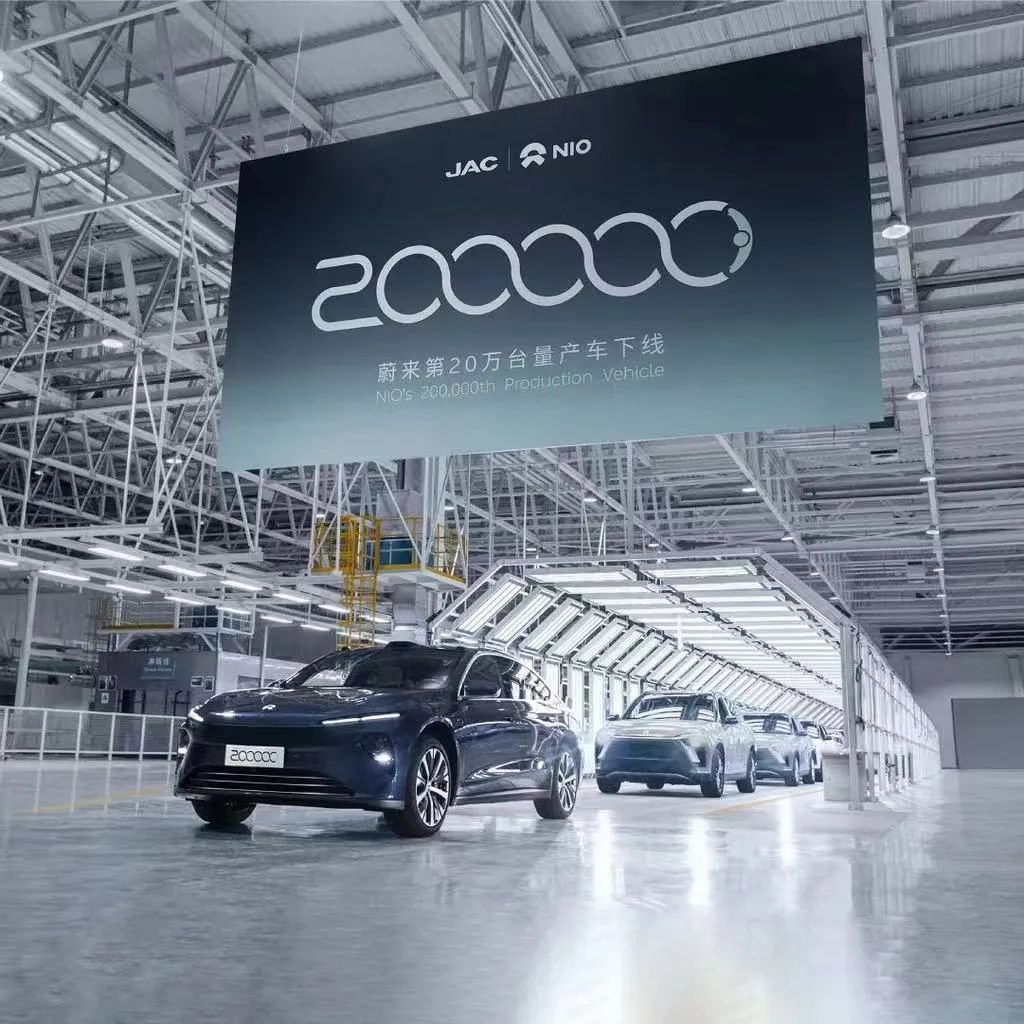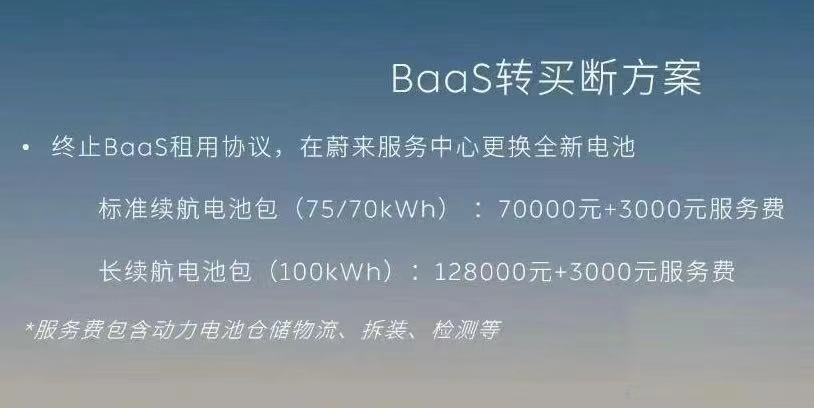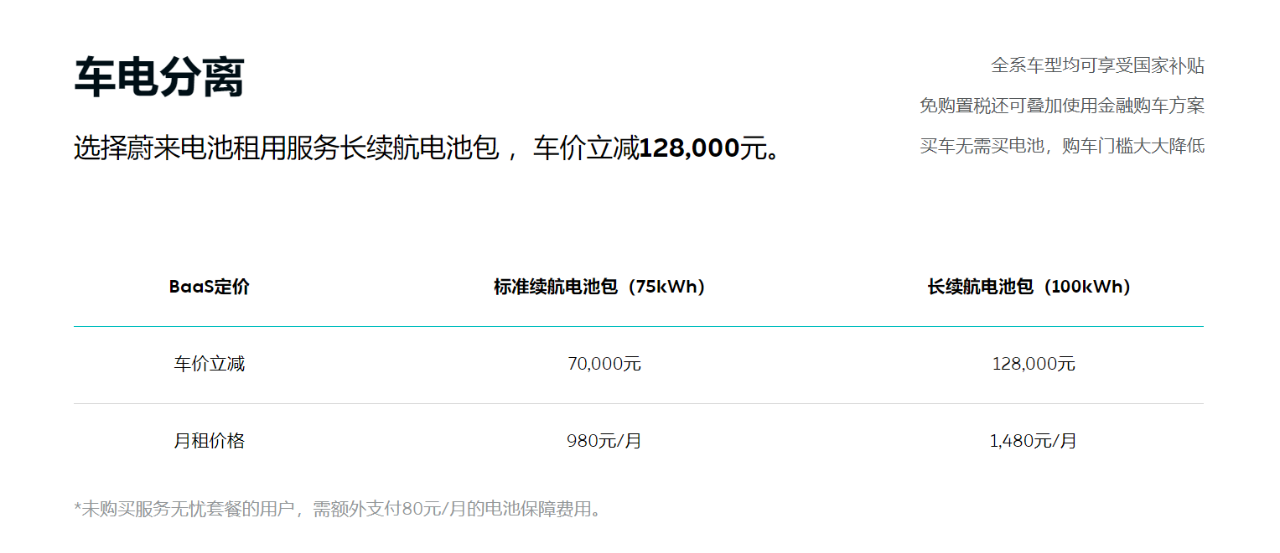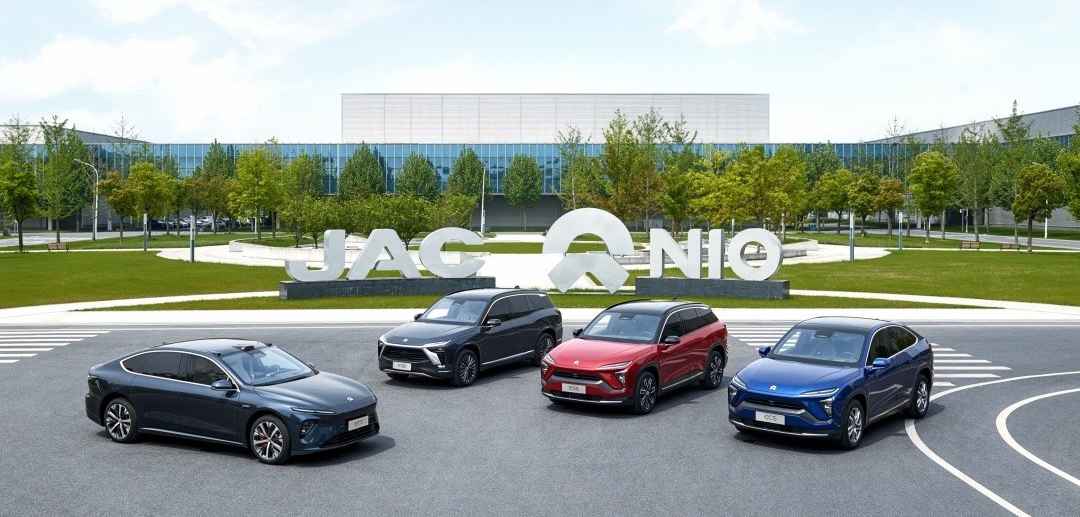Author: Su Qin
On April 26th, Li Hong Qin, CEO of NIO, announced on the official NIO APP that the ET7 model in Antarctic Blue had passed the inspection line, marking the production of the 200,000th NIO car.

From May 2018 to April 2021, NIO achieved a leap from 1 to 100,000 high-end intelligent electric vehicles in three years. It took only one year to achieve the second 100,000 units thereafter.
Compared with the “200,000th NIO car produced” milestone, NIO’s “battery as a service (BaaS) buyout” program seems to be more eye-catching.
Recently, news broke that NIO will launch the BaaS buyout program. On April 24th, the official NIO APP account “大当家” confirmed in the user comment section that the news is true, and the program will be officially launched from April 25th. This means that car owners who originally chose to lease the battery pack now have the opportunity to buyout the battery.

The price of a new battery pack remains unchanged at 70,000 RMB for a 75kWh battery pack, and 128,000 RMB for a 100kWh battery pack. If users choose to buyout the battery pack during their subscription, they will have to pay an additional 3,000 RMB service fee, which covers the logistics, testing, and dismantling of the new battery pack. If the user does not need to replace the battery pack, the 3,000 RMB service fee is waived.
On the NIO APP, users have mixed opinions about the program. Some people support NIO for offering users the option to choose between buying and leasing batteries and truly considering users’ needs, while others are very dissatisfied and claim that they lost money on the previous battery lease payments.
According to NIO, they “hope to provide a conversion option for regretful users”. On August 20th, 2020, NIO first introduced the BaaS battery leasing service, which achieved separation of the car and the battery. The specific plan is: leasing a 75 kWh battery pack results in a 70,000 RMB reduction in the car’s price and a monthly rental fee of 980 RMB; leasing a 100 kWh battery pack results in a 128,000 RMB reduction in the car’s price and a monthly rental fee of 1480 RMB. Users who did not purchase the “NIO Care” package need to pay an additional 80 RMB/month for battery protection.

 Different from other manufacturers’ battery installment plans, BaaS is a perpetual leasing service, which means that car owners do not have battery ownership but only the right to use it.
Different from other manufacturers’ battery installment plans, BaaS is a perpetual leasing service, which means that car owners do not have battery ownership but only the right to use it.
For car owners with limited budgets, this undoubtedly solves their urgent needs. In addition, for users with short-term car replacement needs, this is also a cost-effective deal.
According to analysis by the blogger of “Garage 42”, for an EC6 with about one year of use and a mileage of no more than 20,000 kilometers, NIO’s official share is about 5%, the buyback value rate is about 68%-73%, and the BaaS value rate is about 66%-69%. However, because the BaaS purchase plan itself is cheaper, the loss amount is less than that of the buyback, which is about 20,000 yuan. Overall, if you plan to hold it in the short term, BaaS is the best choice, but it will not be as cost-effective as the buyback battery after 3-4 years.
When NIO officially announced the BaaS plan, it stated that “BaaS users do not need to bear the cost of battery attenuation, and the vehicle will retain its value”, but in the second-hand car market, it seems that this claim is not convincing. Surveys have shown that the resale value of electric vehicles is lower than that of fuel vehicles, and the acceptance of pure electric new energy vehicles in the second-hand car market is already low, let alone NIO models with battery leasing. Without considering the official channels, the “difficult to sell” situation has made many NIO car owners distressed.
The implementation of the buyback plan this time is also to a certain extent the result of NIO listening to car owners’ opinions. Many users expressed their support, saying that “this is quite user-friendly”, “more choices are good”, and “it shows that NIO is a user-oriented company”.
Is the user experience better?
Some people are happy, some are upset, some are happy to say “there is finally a regret medicine”, and some say “this regret medicine is too expensive”.
The official NIO account “User Leader” explained that because the BaaS business is pay-as-you-go, the rent previously generated will not be refunded, that is, all rent from the delivery date to the buyback date is already incurred BaaS fees. If the last month is not enough to complete the entire month, the rent will be calculated on a daily basis, and the buyback date will be the date when the agreement is signed and payment is completed. In other words, the previous monthly rent cannot offset the buyback fee.
Many users who hold opposing views believe that their previous rent payments have gone to waste. If they plan to hold the vehicle for a long time, paying the battery rent month after month is to pay for their choice of buying the car. Now they are told they can “regret”, and although choosing to switch to the buyback plan midway can stop the loss in time, they still feel bitter about it.User “Lao Zhu Bu Lao” made a vivid analogy, “BaaS is like a walled city. It is reasonable for NIO to design a buyout policy based on customer demand, like opening a door for the walled city. However, the problem is that the door is like a dog hole, where you can choose not to leave or enter, and NIO does not force you to. But the existence of this hole makes users uncomfortable, and it actually backfires.”
“Out of consideration for reducing losses, transferring to a buyout is the best solution, but feeling sorry for one’s own rental is becoming a contradiction for many users.”
Why do users who choose BaaS have thoughts of losing blood? Ultimately, it is because NIO has not made a reasonable distinction between the right to exchange for buyout users and BaaS users.
Currently, both parties enjoy almost the same right to exchange. BaaS users believe that their cars have a lower resale rate in the second-hand market than buyout users and are difficult to sell; while buyout users enjoy the same right to exchange, that is, the battery will hardly depreciate, which is unreasonable.
NIO’s battery swap service is free for users before October 2020; starting from January 22, 2021, users who pay a deposit to purchase NIO’s models can enjoy four free battery swap services per month if they choose a free charging pile, or six free battery swap services per month if they choose to give up the charging pile.
User “Lei Shen Maxwell” in the NIO community pointed out sharply, “The buyout plan does not solve NIO’s actual problem, and the feelings of current car owners will affect the future purchasing intention of car owners.”
Some users straightforwardly said, “Car owners who want to profit at any cost are cultivated by NIO’s ever-changing policies.”
In addition to condemnation, some car owners have put forward personal policy suggestions. They believe that the pain point of BaaS is not the monthly battery rental fee, but the lack of recognition of BaaS in the second-hand car market. Instead of constantly changing policies, it is better to consider giving BaaS acquirers some favorable policies on the official second-hand car platform. This is much better than introducing policies that make users hesitate again.
This article is a translation by ChatGPT of a Chinese report from 42HOW. If you have any questions about it, please email bd@42how.com.
